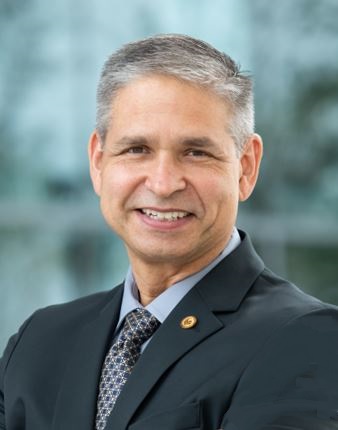

| Name | Prof Dr. Ross Wolf |
| Qualification | Ed.D. in Higher Education Administration/Educational Leadership University of Central Florida |
| Organization | College of Community Innovation and Education, University of Central Florida |
| ross.wolf@ucf.edu | |
| URL | https://ccie.ucf.edu/profile/ross-wolf/ |
| UTAR Contact Person | Dr. Cheah Phaik Kin, cheahpk@utar.edu.my |
1. Wolf, R. Borland Jones, C. (2018). Volunteer police, choosing to
serve: Exploring, comparing, and assessing volunteer policing in the United
States and the United Kingdom. New York: Routledge.
2. Wolf, R., Melsoh,
C.,Wood, R. (2013). Constitutional Limitations of Interviews and
Interrogations in American Policing. Durham, NC: Carolina Academic Press
1. Wolf, R.,Bryer, T. (online first, 2019). Applying
an outcomes based categorization to non-warranted/non sworn volunteers in United
States policing. The Police Journal: Theories, Practice, and Principles.
2.
Britton, I., Wolf, R., & Callender M. (2018). A comparative case study of
reserve deputies in a Florida sheriffs office and special constables in an
English police force. International Journal of Police Science and Management,
20(4), 259-271.
3. Dobrin, A., Wolf, R., Pepper, I., & Falik, S. (Online
First: December 31, 2017). Volunteer police: What predicts confidence in
training? Criminal Justice Policy Review. DOI 10.1177/0887403417749875.
4.
Wolf, R., Pepper, I. & Dobrin, A. (2017). An exploratory international
comparison of professional confidence in volunteer policing. The Police Journal:
Theories, Practice, and Principles, 90(2), 91- 106.
5. Dobrin, A., & Wolf, R.
(2016). What is known and not known about volunteer policing in the United
States. International Journal of Police Science and Management, 18(3), 220-227.
6. Wolf, R., Holmes, S., & Jones, C. (2016). Utilization and satisfaction of
volunteer law enforcement officers in the office of the American sheriff: An
exploratory nationwide study. Police Practice and Research: An International
Journal, 17(5), 448-462.Online First article featured on CNN (April 14, 2015)
The Wall Street Journal (April 14 and 15, 2015), The Independent (April 18,
2015), and The Guardian (April 17, 2015).
7. Hougland, S & Wolf, R.
(2016). Accreditation in Police Agencies: Does External Quality Assurance Reduce
Citizen Complaints? The Police Journal: Theories, Practice, and Principles,
90(1), 4054.
8. Mayorov, V. Wolf, R. (2016). [Citizen participation in policing: Volunteer police in the
United States and voluntary national teams in Russia], [Issues of
Law], 5(59), 101107. [In Russian]
9. Pepper, I.& Wolf, R. (2015).
Volunteering to serve: An international comparison of volunteer police officers
in a UK North East Police Force and a US Florida Sheriffs Office. The Police
Journal: Theories, Practice, and Principles, 88(3), 209-219.
10. Mesloh, C.James-Mesloh, J., Medley, L., & Wolf, R. (2012). Evaluation of rubber ball
grenades: Applications for law enforcement and corrections. Law Enforcement
Executive Forum, 12(3), 80-89.
11. Mesloh, C.,Wolf, R., & Medley, L.
(2011). Infrared beacons: Applications for law enforcement.Law Enforcement
Executive Forum, 11(3), 107-116.
12. Eastep, M.A., & Wolf, R. (2010). Toward
enhanced criminal justice employability: Linking internships, curriculum content
and assessment. Academy of Criminal Justice Sciences Assessment Forum (May,
2010), 1-18.
13. Wolf, R., Mesloh, C., & Henych, M.(2010). Fighting campus crime: Perceptions of police canines at a metropolitan
university. Critical Issues in Justice and Politics, 3(1), 1-18.
14. Wolf,
R., Mesloh, C.,Henych, M.& Thompson, F. (2009). Police use of force and
the cumulative force factor: A five year analysis. Policing: An International
Journal of Police Strategies and Management, 32(4), 739-757.
15. Wolf, R.,
Pressler, T& Winton, M. (2009). Campus Law Enforcement Use‐of‐Force and
Conducted Energy Devices: A National-Level Exploratory Study of Perceptions and
Practices. Criminal Justice Review, 34(1), 29-43.
16. Wolf, R., Korosec, R.
& Goltz, J.(2008). An analysis of factors affecting the implementation of
small municipal police agencies: An open-systems approach. American Journal of
Criminal Justice, 33(2), 177192.
17. Wolf, R. (2008). Tourism Oriented
Policing: An examination of a Florida/Caribbean partnership for police training.
International Journal of Police Science and Management, 10(4), 402-416.
18.
Wolf, R., Mesloh, C.,& Henych, M.(2008). Cumulative Force Factor:
Examining Resultant Suspect and Officer Injuries. Law Enforcement Executive
Forum, 8(4), 65-79.
19. Mesloh, C.,Wolf, R., Henych, M.& Thompson, F.
(2008). Less Lethal Weapons for Law Enforcement: A Performance‐Based Analysis.
Law Enforcement Executive Forum, 8(1), 133-149.
20. Wolf, R., & Gordon, A.
(2007) License Plate Recognition (LPR) Technology: Practical and Legal Issues
for Police Implementation. Law Enforcement Executive Forum, 7(7), 93-99.
21.
Mesloh, C.Wolf, R., & Henych, M.(2003). Corrections personnel and
perceptions of misconduct: An examination of ethics at one correctional
institution. Corrections Compendium, 28(5), 1-19.
22. Mesloh, C.Wolf, R.,
& Henych, M.(2002). Scent as forensic evidence and its relationship to the
law enforcement canine. Journal of Forensic Identification. 52(2), 169-182.
23. Mesloh, C.,Wolf, R., & Henych, M.(2002). Sniff Test: Utilization of
the law enforcement canine in the seizure of paper currency. Journal of Forensic
Identification. 52(6), 704-720.
24. Wolf, R. (2002). Proactive change toward
a Tourism Oriented Police in Saint Lucia. Caribbean Journal of Criminology and
Social Psychology. 7(1&2), 235-244.
25. Mesloh, C.Wolf, R., & Holmes, S.
(2002). A pilot study of the confounding effects of Jute on law enforcement
canine training. The Journal of the Academy of Canine Behavioral Theory. 1(3),
2-9.